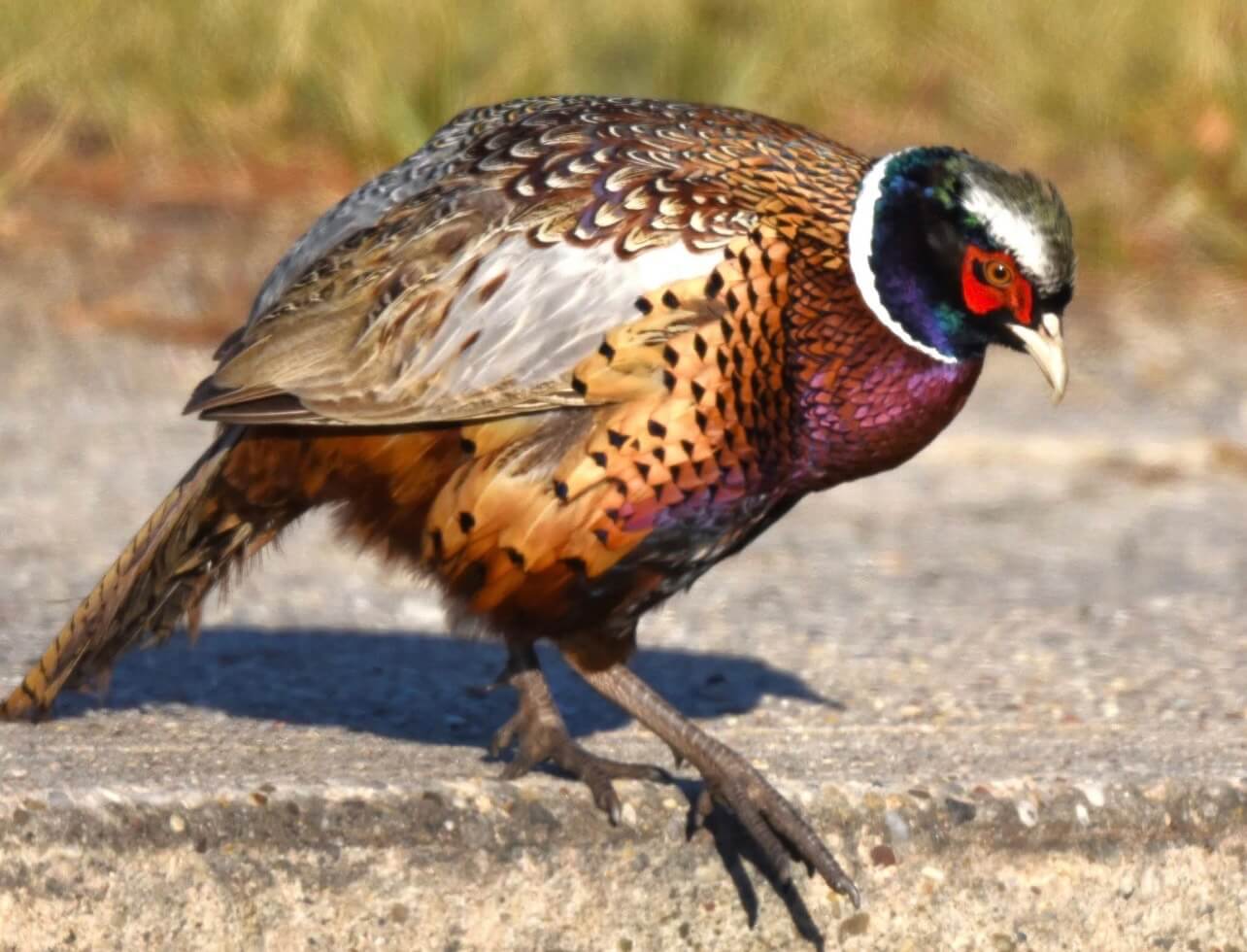The Dark Truth About Pheasants on the East End

Pheasant hunting has a long history in New York, and continues to grow increasingly popular among hunters and their families. While hunting is a sport that oftentimes is critical to maintaining the balance of our local ecosystems, pheasant hunting pertains to a detrimental practice that can be considered inhumane: the way pheasants are raised and released.
As a non-native species to the Americas, as they originate from Asia and parts of Europe, pheasants are bred in New York’s Department of Environmental Conservation’s (DEC) only game farm, the Richard E. Reynolds Game Farm in Ithaca. Starting in October, and ending late December, hunting season begins with the release of all domestically raised pheasants, in which over 30,000 adult pheasants are released just prior to hunting season, with more released during the season totaling up to 50,000 pheasants each fall just in New York, and over 2,100 in Suffolk County.
The issue is that these pheasants are raised through the Day-Old Pheasant Chick Program by the DEC, which is a paid program by hunters and trappers that allows people, typically farms, to raise and release pheasants that enhance NY state hunting opportunities. Evelyn Alexander Wildlife Rescue Center’s (EAWRC) Hospital Supervisor and Licensed Wildlife Rehabilitator Adrienne Gillespie explains why this is a problem, “When these pheasants are released, because they are raised on farms, they have little to no survival skills. They travel in flocks, are heavily malnourished, and obtain parasitic infections from improper care.”
In the last couple years, the number of pheasants the EAWRC has taken in to rehabilitate has risen from 1 or 2 annually to over a dozen throughout the hunting season. “Last year, we took in 6 or 7 pheasants found on the side of Sunrise highway, some shot but most were hit by cars,” Gillespie states, “and we just recently took a couple more in from Westhampton and East Quogue after some flocks tried to cross the road. Most were instantly crushed.”
With these rising numbers, the EAWRC has had to send out a number of volunteers to retrieve pheasants suffering from various injuries, especially from vehicular accidents, including “head trauma, broken wings, missing feathers, severe malnourishment, internal parasites, and other bodily trauma,” Gillespie adds.
She further explains, “We have to rehabilitate these pheasants for several months as they recover because they are not fed well, not taken care of, and released to suffer in the wild, obtaining these injuries either at the farm or out in the wild where they don’t know what to do.”
Pheasants are incredible for farms because they eat bugs and ticks, however, all they receive in return is being thrown into an unfamiliar environment, which leads to inhumane and inevitable death. According to Change.org, scientists estimate that up to “35% of pheasant deaths are due to crippling injuries and not being retrieved” as these birds struggle to adapt to a wilderness they do not know.
The DEC doesn’t protect these pheasants since they are not a native species, yet continues to breed and release them for hunting, despite the fact that, especially on Long Island, many succumb to gruesome deaths associated with their domestic upbringing and lack of survival skills.
The EAWRC works diligently to recover these birds and find proper, safe and loving homes for them. Gillespie explains, “We work closely with John Di Leonardo, anthrozoologist and executive director of Humane Long Island, doing rescue searches and taking in surviving pheasants to hopefully find reliable homes.” Just recently, they took in survivors from Manorville after Di Leonardo participated in a 2-mile rescue mission for dying pheasants. “He is always fighting the DEC on behalf of the pheasants. John will drive up to Albany at an hours’ notice to go in front of court and the government to protect these poor birds,” Gillespie continues.
Once they are treated and successfully rehabilitated, the EAWRC continues to work with Di Leonardo to find homes for them, or they are transferred to a sanctuary called SkyWatch Bird Sanctuary, located in North Carolina, which takes in pheasants for the EAWRC until they can find safe homes for them.
Pheasants are beautiful birds, and it’s a shame to watch every year as these birds are treated so terribly, laying on the side of the road in flocks, all suffering from injuries, malnourishment and so much more. Although they are not native, there is no reason for the incredibly inhumane manner in which they are raised and released, only for the sake of additional funds for the DEC.
The center is located at 228 West Montauk Highway, Hampton Bays. It can be reached at 631-728-4200, and animal emergencies can be reported at 631-728-WILD (9453). The center is open 9 a.m.–5 p.m. seven days weekly. Visit wildliferescuecenter.org for info.



